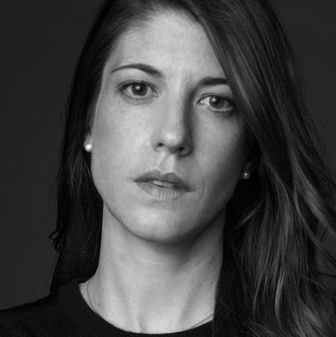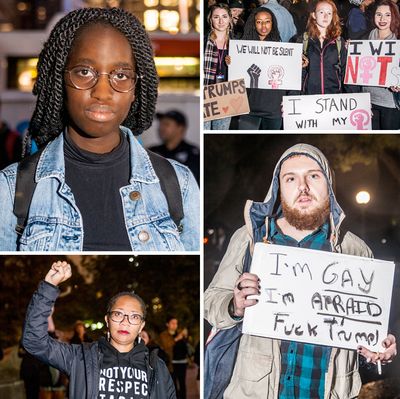
The stages of grief were on full display last night in Manhattan as protesters gathered on in the spitting rain outside Trump International Hotel to pause, reflect, cry, and process what many in the crowd described as shock and fear.
Gone were the celebratory pantsuits of Tuesday night, and instead the diverse crowd was dressed all in black, somberly chanting to a slow drum beat: “Not my president.”
“Everything he stands against is everything I am,” said Maya Kamara, a 20-year-old first-generation American. “I am a woman, I am black, and just being in a country that doesn’t want me is really hard.”
Organized in part by the 100 women of color who wrote an open letter to the United States, the group marched down Broadway toward Union Square, where it met up with a set of much angrier protesters. The whole crowd moved north through Times Square, momentarily parting the crowds.
Eventually they joined similarly vociferous gatherings outside of Trump Tower in Manhattan, where the second stage of grief, anger, continued through the night, in full cathartic effect. We spoke with New Yorkers about what they feeling and what they are planning to do now.
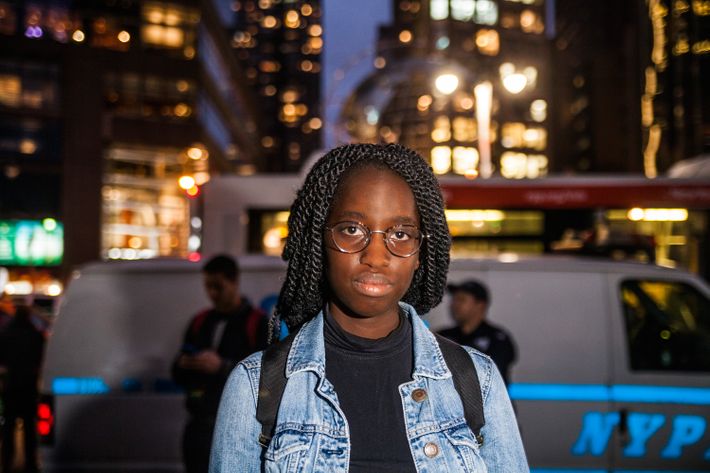
Maya Kamara, 20
What are you going to do next? “I want to find a way to still fight for the things I believe in, in a country that doesn’t believe in me.”
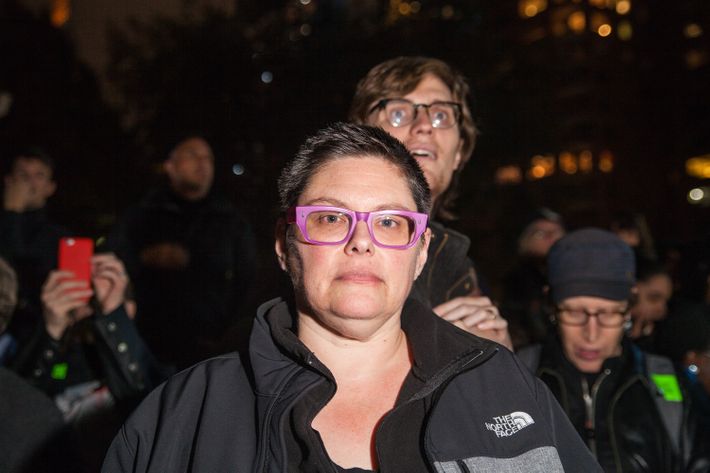
Stephanie Schroeder, 52
What brings you here today? “It is about myself, but it is also about everyone else. I am a woman, a lesbian, and a poor person, and I’m also an ally to people of color, immigrants, everybody who does not have my privilege of white skin, and Donald Trump is not my president. When I went out today, everyone was catatonic, in a stupor.”
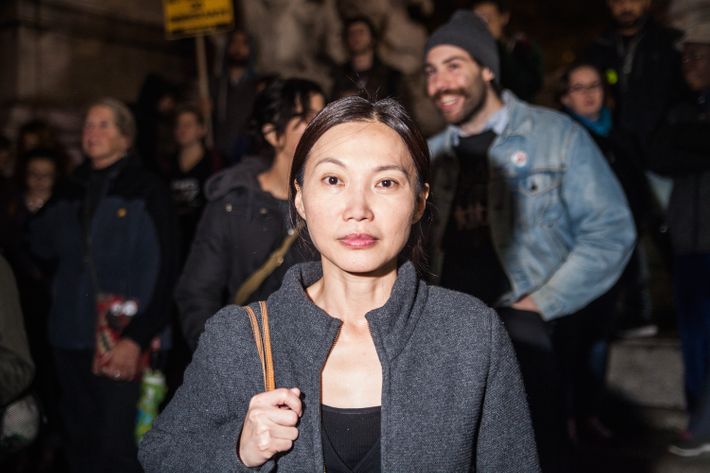
Hae Young Yoon, 44
What are you going to do? “I do want to take some time to process the emotion, because I think the emotion has been building. It is not just yesterday. This entire election cycle, there was so much hate and racism, and it exposed how deeply, deeply divided this country is. So it is going to take some time on a personal level. All of us in a broader social-justice movement, fighting for justice and dignity, we need to regroup and move forward. I see people here just crying and weeping. I think it is important to recognize that.”
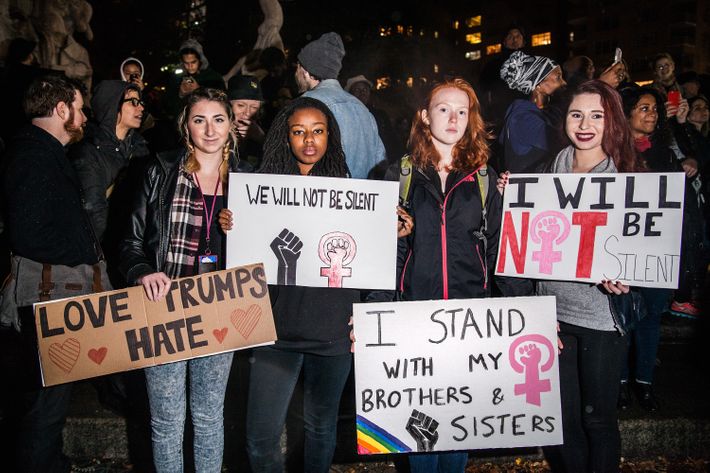
Roman Doumbia, 19, Student
What brings you here today? “I’m a first-generation American. I am the child of immigrants. A lot of the stances that [Trump] has taken, and a lot of the things that he said said, have really hit home for me … We’ve heard a lot of things [that are] anti-LGBTQ community and there are so many people that are part of that community that mean a lot to me.” What are you going to do? “I am still a little shocked it happened, but I’m feeling a lot better now that I can see that there are so many people who are taking time to make sure that people know this is important. I’m going to keep going to protests. I have talked to a lot of Trump supporters who are not entirely sure that what he has been saying he supports. So I’m going to keep talking to people and let them know what the truth is and have them stand up for what is right.”
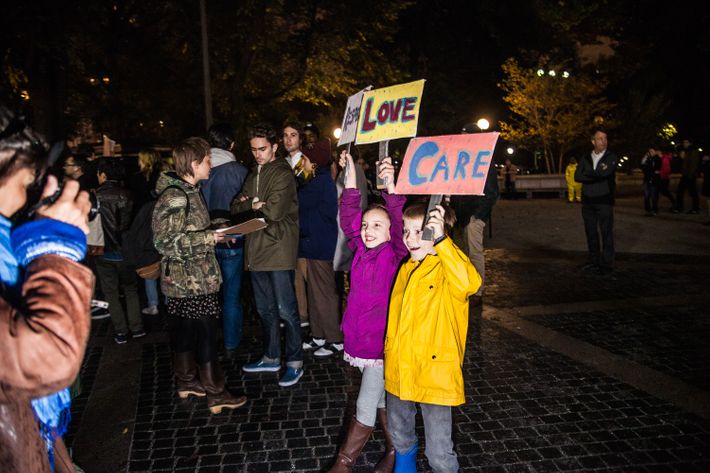
Katey Darago (her daughter Adela Agmi is pictured here, wearing pink)
What made you bring your daughter here today? “There is no taking back what she already knows about Donald Trump. I just thought it was important to show her you can be against what is going to be our established reality for the next four years. I have never done anything like this in my life. I had to show her. She’s into it. She’s internalizing it.” How did you tell her about the news? “She saw me crying. I feel like every mom I know has been crying in front of their kids today. ” What are you going to do now? “She is going to be very educated about what is going on in the world, and we are not going to be accepting of Donald Trump as our president. And I feel like it is a great lesson: We don’t have to accept that this is the way it is.”
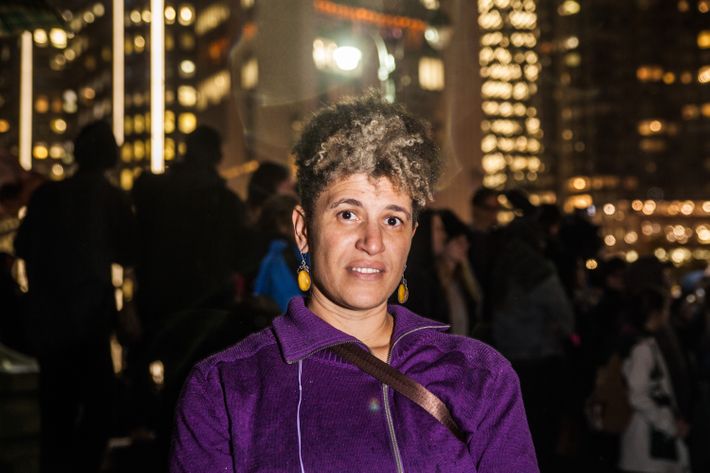
Autumn Leonard, 39
What are you going to do now? “We need to do a lot of groundwork and we need to start electing attorney generals to protect black folks. We need to start retraining police departments all around the country. And we need to start electing mayors and City Council people everywhere, because obviously the government is not going to protect us from the top, but maybe there is some safety closer to the ground.”
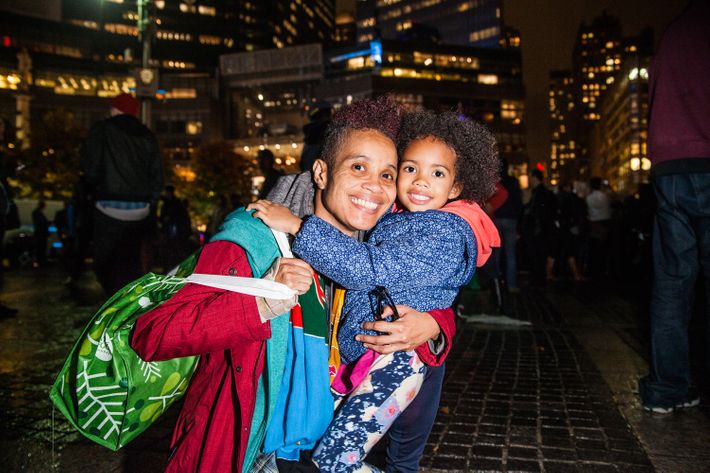
Stacey Ann Chin, 43, and Zuri Chin, 4
“We are all just standing out here trying to figure out what we do now, and what we do now is what we always do. We gather our children, we gather our voices, we put our politics forward, and we push, we resist, and we ache toward utopia. We dream of a better time, and we comfort ourselves with a truth that has been a long-standing mark of history: This too shall pass.”
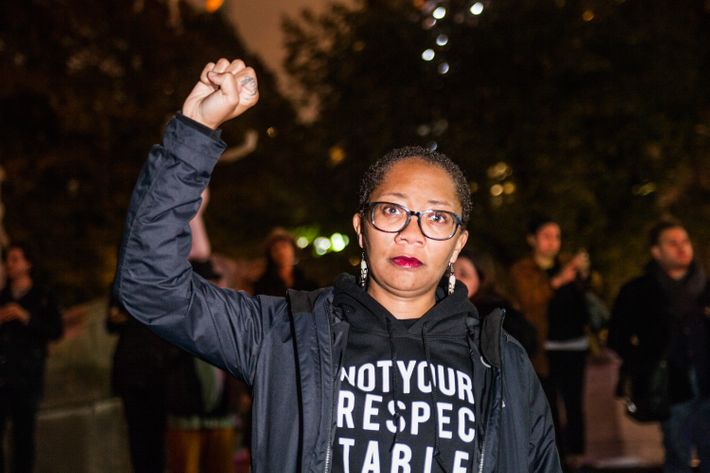
Lauren Broussard, 33
What will you do now? “For me the only option is to be louder, to be more problematic, to be blacker, to be more of a woman, to be in their face more with it. I’m not leaving. My ancestors went through too damn much being brought to this country the way they were to get up and go over this. We have survived worse. We will survive worse. I am fighting. I want to make it really hard for him to have a public inauguration. That’s my goal.” What will that look like? “For me it’s that old adage of ‘No justice, no peace.’ You are not going to be able to have a quiet little formal ceremony. We are going to be loud. We are going to be an issue. We are going to get our Congressperson’s tickets and be there. We are going to be in the audience, resisting every step along the way. This man has made it clear he wants to take away people’s right to health care, he wants to take away women’s right to own their own bodies. He is a sexual predator; he has made that very clear. And we can’t shut up. We can’t take any of that silently.”
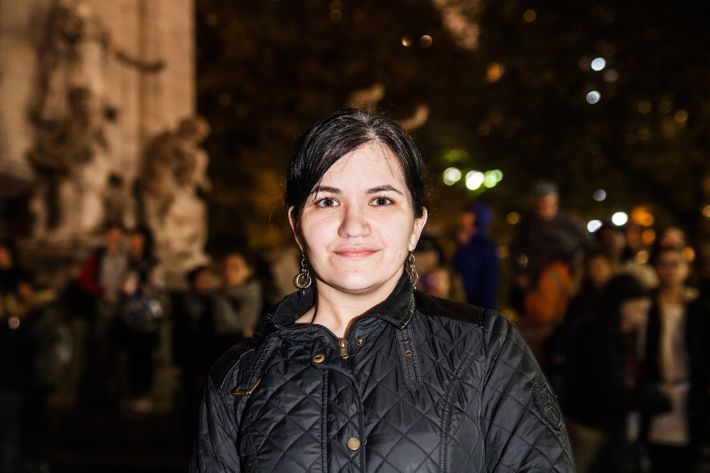
Olivia, 33
Are you concerned about any policies in particular? “No. 1, I’m a woman, I identify as bisexual, so there you go —any LGBTQ rights. I am Latina, I am first-generation; my parents came from other countries. And then I’m worried for my Muslim friends, my black friends. I work at a nonprofit where many of our families are immigrants and I worry for their safety. I’m worry for our children’s public education. I worry for medical care and access, I worry for our position in the world.”
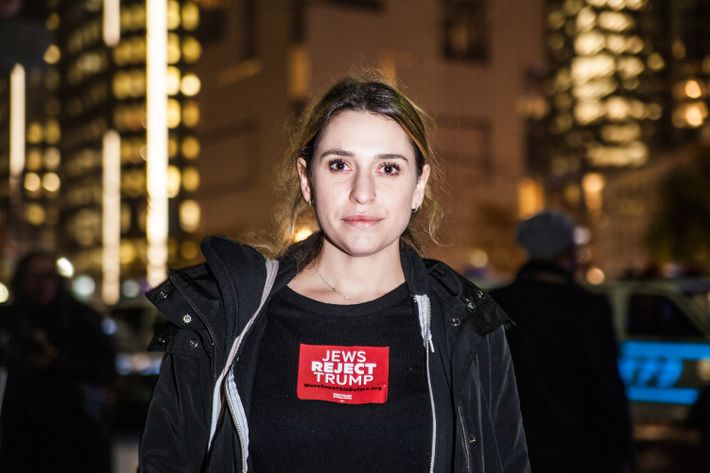
Megan Ackerman, 28
What brings you here today? “Just the need to do something bigger than sit at home and cry. I felt like this would be a way to get some clarity on what is next, and to hear from communities of color what they need from their white allies.” How did you feel when you heard the news? “Not surprised. I sort of saw where it was going. I have been working on a campaign to mobilize Jews to take action against Trump, because we have seen this before — that was the campaign’s name, We’ve Seen this Before. And I have been watching and hearing what his supporters were saying, and I knew he had been gaining momentum, and it was absolutely terrifying that it was possible.”


